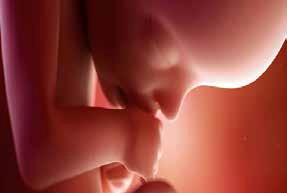No Alcohol No Harm Warning for Mums to Be
For many years there have been mixed messages around drinking alcohol in pregnancy, but a new hard-hitting campaign by NHS Greater Glasgow and Clyde aims to clear up the confusion once and for all.
“No alcohol, no alcohol harm” is the theme of an information campaign, aimed at pregnant women and those thinking about having a baby, to highlight the risk of their child being born with Fetal Alcohol Spectrum Disorder (FASD).
The most conservative estimate is that 500 babies born in Scotland every year have been adversely affected by FASD. The launch of the extensive public health campaign coincides with International FASD Awareness Day which was on 9 September. As well as posters and information materials in antenatal clinics and across local communities, there will be additional training for midwives and social media channels that will be used to help mums to be make healthy choices.
Dr Linda de Caestecker, NHS Greater Glasgow and Clyde Director of Public Health said: “Women get their information from various places, not just their doctor or midwife. They read books and magazines, they scour the internet, chat to their mum and other friends who have had a baby before. And this means they often get mixed messages.
“The aim of this campaign is to set the record straight. NHS Greater Glasgow and Clyde will do this even when the truth is less comfortable and less welcome than the popular myths to which our society has clung for too long. The message is that the only way to guarantee your baby not being exposed to alcohol harm is to avoid alcohol completely.”
Nikki Boyle, Health Improvement Senior (Alcohol) for the Partnership added, “For the first time, the guidance is the same across the whole UK, which should help to limit any mixed messages. The Partnership has a key role to play in getting this message across to everyone who is in a position to give advice to pregnant women. The well intentioned advice from friends and family is often misguided so putting out a clear, consistent message to everyone will be a positive step.”
FASD is often associated with facial features such as small eyelid openings, short upturned noses and reduced sized heads, but it can also affect the heart and cause varying degrees of learning disabilities. It causes permanent, irreversible damage to a baby’s brain.
Unlike adults, babies in the womb have no capacity to metabolise alcohol, meaning it stays in their system longer that the mum’s, increasing the greater potential harm.
Dr de Caestecker added: “Fetal alcohol harm is the single biggest and 100% preventable cause of learning disabilities and behavioural difficulties among children, young people and adults in the UK. No alcohol, no alcohol harm.”
For more information please contact your midwife or other health professional.

